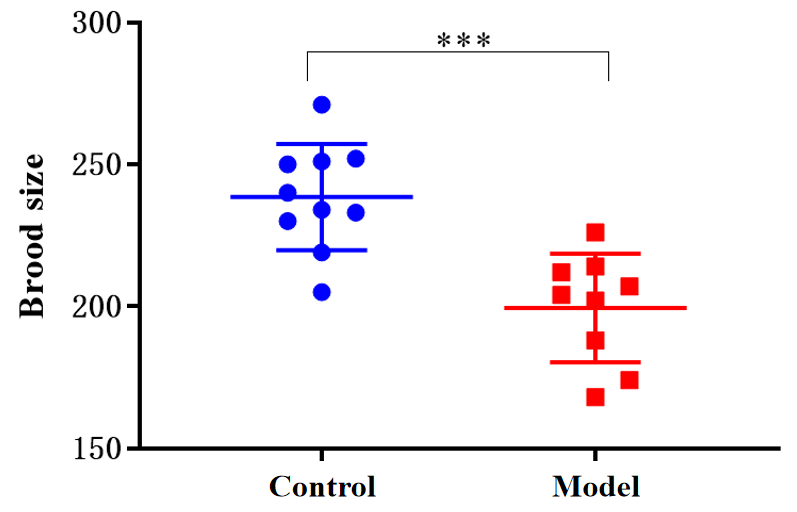Reproductive Toxicity Analysis Services
Reproductive toxicity evaluation using C. elegans assesses the effects of chemicals, environmental pollutants or drugs on the reproductive system. This includes potential toxic effects on egg formation, sperm quality, mating behavior, embryonic development, and overall fertility. Through our services, you can effectively screen and evaluate potential reproductive toxicants and identify chemicals that may affect the reproduction of organisms and the health of offspring in advance. This type of evaluation is often used in environmental toxicology, drug screening, and toxicity assessment of industrial chemicals.
Our Services
Our C. elegans reproductive toxicity evaluation includes but is not limited to:
ØMating Behavior Analysis
Evaluate the effects of chemicals on the mating behavior by observing indicators such as mating success rate, mating time, and mating frequency in male and hermaphrodite C. elegans.
ØReproductive Output and Hatching Rate Evaluation
Quantify egg production and hatching rates under specific exposure conditions and evaluate the effects of chemicals on egg formation and embryonic development.
ØEmbryonic Development Observation
Monitor embryonic development timelines and identify abnormalities during hatching (such as developmental delay, embryonic death, etc.), reflecting early toxic effects on the reproductive process.
ØReproductive Capacity Assessment
Evaluate offspring produced and offspring development rate to evaluate chemicals toxic effects on the reproductive process
ØMorphological Analysis of Reproductive Organs
Examine reproductive organs under a microscope to detect morphological abnormalities, such as dysplasia, damage, etc., caused by chemical exposure. This helps to assess the direct effects of chemicals on the reproductive system.

Fig.1 The number of progeny of Caenorhabditis elegans after treatment with a certain compound


